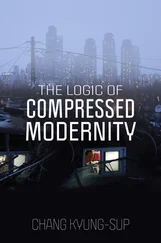“She didn’t lose five,” Sylvie said miserably. “Not every one.”
Tanner was momentarily silent. But then he said: “We can’t think about that anymore. Being around all these children has heartened me-but, I see now, in an astonishing way. Their spirit and ceaseless energy have brought me renewal. I feel very strong inside. And I was thinking as I drove back tonight how lucky we’ve been to have this time here. What a rare chance this is, to be amid so much possibility! So many hopeful beginnings! And here you haven’t been well and my frequent trips to Seoul and to the other orphanages have only made things worse for you.”
“It’s not your fault. It’s not at all.”
“It is my fault. Perhaps I’m not the cause, but I’ve exacerbated the situation, and I’m as culpable in the end as if I were. I’ve been negligent. I’ve been a poor husband, by every measure. Not only these past months in Korea but for years now. It’s why I returned instead of staying over in town, to tell you how sorry I am, for the way I’ve willfully disdained your unhappiness, when I should have redoubled my efforts to help you. To be with you. I’ve been selfish, and terribly self-righteous, too. I’m asking if you’ll forgive me, Sylvie. If you’ll try to forgive who I’ve been and let me come back to you.”
“Forgive you ?” she cried. She was trying to say something now, but she was gasping from low in her chest, shuddering, and June was sure that she was going to confess to him, admit what he may have already known, but he was shushing her, telling her that there was nothing she needed to say. June slowly stood up to peer over the sill and through the gauzy curtain and saw him embracing her in the lamplight as she sat up in her bed. He stroked her mussed-up hair.
“Let’s start again, darling. I’ve come to have a renewed belief in our chances. I want to try for us again. We can still take children home with us, but I want you to believe that we can have our own. Can you do that for me? Will you?”
“Yes,” she said, wiping her eyes, her nose. “I will, for you. But I think it’s too late, Ames.”
“It doesn’t have to be.”
“But it is,” she said hopelessly. “It’s too late.”
“It’s not!” he said, his voice loud enough to buzz the window glass. He paused, then spoke gently again: “It’s only too late if you believe it so. We have no chance otherwise. None at all. We must want the same thing, which hasn’t been the case for a long time. It’s not mysterious to me anymore.”
He bent down and kissed her on the forehead, and the cheek, and then on the mouth. She didn’t turn away. Perhaps she was not wholly with him but she wasn’t fleeing, or flinching, and when he pulled on the sides of her nightgown she simply raised her arms so he could lift it from her body. Her ribs showed starkly. He clasped her there and pressed his face into her breast and as they lay down on the bed he put out the oil lamp, sending the room into perfect black. June ducked, afraid her silhouette might be visible. For another half-hour she remained crouched in the near-frosty night air, listening for the scuttle of lovemaking as she did in the storeroom next to Hector’s quarter but hearing in the end only Tanner’s low, sharp breaths, half pained.
The next day was bright and glorious, the hillsides awash in a gaudy autumnal display. The shimmering glow was bounding inside of June, too, despite the terrible headache and congested chest that she’d awoken with after finally going back to the dormitory, her hands and feet and face numb with the freezing air. And she was finally realizing now how she ought for the moment to desist, pull back, force herself to recede from Sylvie, and from Tanner, too. She saw how amazingly shortsighted she had been, what a stupid, silly child, ridiculous in her neediness, mistaking her unwavering insistence on wedging herself into their lives for a strength, a necessity, when it was in fact only helping to dismantle everything she wanted. It didn’t matter if they would still have their own baby or not, or if they adopted another child or children along with her; all that mattered from this point on was that the Tanners remain as is, that they work together, as before, that they be at least accepting of their union, even if they were no longer deeply in love. She had enough love for Sylvie, she was certain, to sustain them both forever.
As for Reverend Tanner, June had already begun to practice her new way: in English class and Bible study she spoke up regularly, clearly surprising him with a new enthusiasm and the demeanor of a girl who was respectful and demure; he even took her aside afterward and asked if she was all right, as she’d steadily coughed throughout the class.
“I am fine,” she said, trying to smile for him, even as her temples pounded.
“Perhaps you ought to rest for the day. You don’t sound yourself.” He patted her shoulder. “You can see if Mrs. Tanner is inside, if you like.”
“I don’t want to disturb her,” she said, and instead headed for the dormitory, imagining with near certainty that he was nodding approvingly behind her. She would show him her restraint. Show him that despite all the fights and other troubles she had caused she was a worthy girl at core, exactly the kind of hard soul he must be here to save. She was not being so crafty or calculating, as she was exercising a differing form of the same capacity for self-discipline and self-direction she’d always possessed and counted on, but now applying it to self-reform. Was true maturity to be found in this measure of control? If so, it was a jubilant feeling. Yet as she lay down in her cot in the empty dormitory, the first rush of a fever welling in the back of her neck, in her joints, the thought occurred that it was in fact Hector Brennan who must be changed. Or even, somehow, removed from the scene; she was already painting him dark with pitch. Blacking him out. It was ironic because if there was anyone in the orphanage besides Sylvie who seemed to understand her or accept her it was Hector; he never judged her or acted as if she ought to behave differently, even when she was raging and belligerent. There was nothing conditional about his regard. He seemed amused by her, if anything, and unlike everyone else (including Sylvie) he was impressed by her regular fisticuffs with the boys, once even demonstrating from across the play yard how she ought to rotate her fist when she threw a punch, drive all the way through.
She did not spend any extra hours with Sylvie; there would be ample time in the future. Rather, she was vigilant of Hector and his movements, noting when he was at work outside on the grounds, or at the sewer ditch, or else left the orphanage at night for the red-light section of the city, which he was frequenting again. Maybe Sylvie had broken it off with him. Certainly the Tanners seemed closer than before, often sitting together at meals among the children. June was practically joyous on seeing Hector return early one morning with his fatigue jacket ripped at the shoulder, his lip bruised, not because he was injured but because he was going into town and drinking and fighting again, which in her ever-grinding calculus was a sure sign that he had relinquished any hope of a civilized future with Sylvie. Whenever Hector did emerge from his room he was always in his soiled work clothes and boots, heading for the ditch digging, which he had almost finished. He’d been working continuously and even set up an oil lamp and dug for a few hours at night before driving late into Seoul.
June openly followed him one morning. He paid no attention to her. He went straight past the Tanners’ cottage on the pathway down the hill to the end of the dig, a mere ten meters to go to the as yet empty pit, setting to work immediately, pickaxing as if he were attempting to injure the ground or himself. But neither seemed to give, the soil at that spot so rocky and compacted that the ax would viciously rebound every so often and almost strike him in the face. Eventually he prevailed. He didn’t seem to tire, only the force of his blows slightly diminishing, his rhythm staying true until he was finished and simply stopped, his chest bellowing deeply in and out.
Читать дальше











